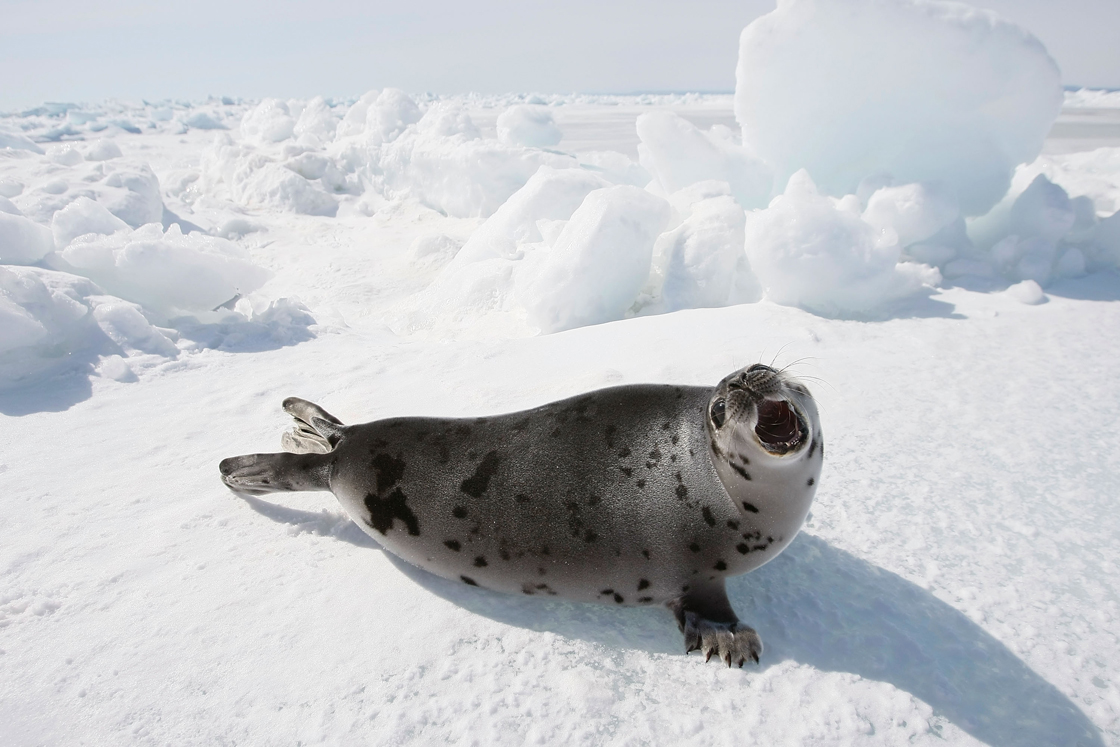ST. JOHN’S, N.L. – A big drop in the commercial seal hunt off Newfoundland this spring can be blamed on heavy sea ice and international trade blockades, says the Canadian Sealers Association.

Executive director Frank Pinhorn said Thursday just fewer than 55,000 harp seals were landed compared to 91,000 last year and 69,000 in 2012.
READ MORE: Gail Shea says animal rights activists stopped seal meat sale to China
Pinhorn said about 65 boats went out compared to 45 last year but many had trouble getting through unusually thick sea ice.
“The conditions last year were much better because the ice was not compressed together,” he said in an interview. “This year they couldn’t get out. Some of the landings were lower per vessel.”
The total commercial harvest was far below the federal quota of 400,000 while the price held steady at about $35 for each of the highest quality pelts, Pinhorn said.
The association is calling on Ottawa to more aggressively deal with bans on the import of seal products that block access to markets in several countries including the U.S., Mexico, Russia and Taiwan.

Get daily National news
The federal government challenged a European Union embargo at the World Trade Organization but lost again on appeal last month. The trade body’s appellate panel upheld a previous ruling that the ban is “necessary to protect public morals” regarding animal welfare. It also cited discriminatory and arbitrary flaws that the EU must correct to uphold its international trade obligations.
READ MORE: Annual East Coast seal hunt starts amid ongoing court case and trade challenge
The Fisheries and Oceans Canada website estimates the northwest Atlantic harp seal population at about 7.3 million. That’s “close to the highest levels observed since monitoring began in the 1950s,” it says.
“In my view, the herd is extremely large and getting larger,” Pinhorn said. “We need some direction from the federal government in terms of dealing with this as a trade issue.”
Pinhorn said there are many markets for seal products. “It’s just that politics is interfering with the exchange of goods. You can’t sell them.”
Fisheries Minister Gail Shea said Thursday in an email that Ottawa’s support for Canadian sealers has been “rock solid.”
She said the government will watch to ensure the EU brings its ban in line with international commitments.
And she referred to $292,000 in federal support to help the Atlantic Seal Development Association create and sell new seal meat products.
“We are proud to defend and support the seal hunt, which is so important to our coastal and northern communities both economically and culturally,” Shea said.
Sheryl Fink, director of Canadian wildlife campaigns for the International Fund for Animal Welfare, said it’s time the federal government gave up what she called a losing battle.
“Attempting to find markets for seal products hasn’t been successful in the past and I don’t think it will be successful in the future. There has got to be better things that we can offer to those communities.”
Fink said better steps would include buying back sealers’ licences, compensating those affected by lost markets and investing in other rural jobs.
READ MORE: #sealfie campaign misguided, activists claim
“I think we’ve seen that this is an industry in decline. It’s clearly on its way out.”
Pinhorn and other commercial seal hunt supporters say there’s still high demand for seal products but they blame what they call “misinformation” campaigns by animal rights groups.
“The market is there,” Pinhorn said. “You just can’t access it.”







Comments